Alcohol, tobacco and soft drinks face increase in excise tax
The Ministry of Finance (MoF) has requested ministries, localities, and businesses for comments on a proposal to amend the current excise tax law primarily targeting the consumption, import, and production of alcohol and tobacco. The size of the proposed increase has not yet been mentioned.
 |
In Vietnam, alcoholic beverages are currently subject to an excise tax rate of 65 per cent, increased from 50 in 2018, while the excise tax on tobacco stands at 75 per cent since 2019. According to the MoF, the consumption of alcohol in Vietnam is still high and increasing, so the excise tax increases between 2016-2018 were not strong enough to affect consumption.
Alcohol ranks 5th in the 15 leading health risk factors in Vietnam and is a major contributor to the rate of traffic accidents, injuries, domestic violence, and mental health issues. Alcohol is a direct factor in the increasing the rate of traffic accidents in men aged 15 - 49.
Over the past 15 years, duty on the alcohol industry has been adjusted five times. The tax increased from 50 per cent in 2015 to 55 per cent in 2016, and then rose to 65 per cent in 2018. The taxable price also changed from the import price to the wholesale price.
Nguyen Hoa Cuong, deputy director general of the Central Institute of Economic Management, speaking at a conference on tax and advertising regulation for alcohol last year, said, "There are still many issues that need to be discussed. For example, the method of taxation, the policies in other countries, the appropriateness of this approach, and the disproportionate impacts on different target groups”.
As in many countries, the introduction of a heavier tax generates two sides of the debate. Private businesses have profit incentives, actively pushing for more alcohol and tobacco consumption, while it is in the public interest to minimise the damage from these same substances.
Regarding soft drinks, the imposition of the tax aims to regulate the consumption of sugar-based beverages in line with international practice, If approved, the proposal would see the tax imposed on carbonated and non-carbonated soft drinks, energy drinks, sports drinks, and bottled instant coffee and tea. The MoF wants to widen the list of items subject to the excise tax to guide consumer trends, given their harmful effects.
This is not the first time the MoF has sought to impose a special consumption tax on soft drinks. In 2014, the idea was mooted with a specific tax rate of 10 per cent, but many ministries and branches resisted. The Ministry of Planning and Investment and the Ministry of Justice assessed that the tax argument was not really convincing at that time, while the Ministry of Industry and Trade worried about negative impacts on business prospects.
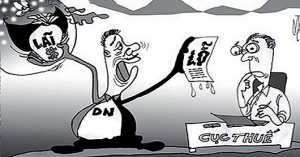 | Extending mandate of tax authorities may halt tax evasion? Handing over the right of prosecution and investigation to the tax authorities is expected to hinder tax evasion as well as delayed tax payments by enterprises, especially multinational firms in Vietnam. |
 | Tax department sends Bibica $130,434 fine and tax arrears Bibica Corporation, one of the leading confectionery businesses in Vietnam, will have to pay VND3 billion ($130,434) in fines and tax arrears, VND2.1 billion ($91,304) of which is value-added tax arrears from 2016-2017, according to information published on its website. |
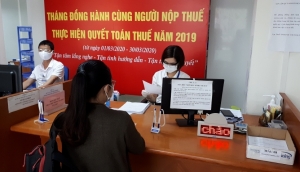 | Hanoi Tax Department launches March Companion Month to support tax payers Hanoi Tax Department is launching the March Companion Month to better facilitate tax payers in their tax settlement with a number of new solutions amidst the COVID-19 outbreak. |
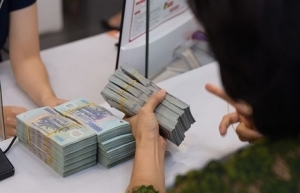 | Tax watchdog aims to better manage real estate tax transactions Tax authorities are aiming to improve tax management of property transactions to prevent tax avoidance and increase State budget collection. |
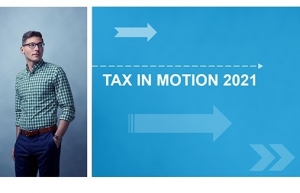 | RSM Tax in Motion 2021 brings businesses up to speed on tax field updates Tax is affecting businesses at a rapid pace. The motion from tax environment changes in general to new tax trends and specific recently developed treatments bring challenges and opportunities to companies of all sizes across many sectors. |
 | Tax for development: Does Vietnam need tax reform? To remain on its successful path of inclusive development, Vietnam will need large public investments for years to come. |
 | Vietnam Tax Summit 2022 covers up-to-date tax legislation Vietnam Tax Summit 2022, the largest annual tax summit in the country that took place last week, featured thought-provoking guest speakers, industry experts, and tax specialists. |
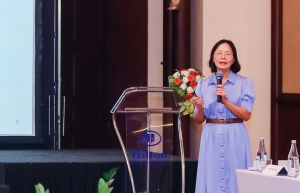 | Vietnam should embrace hybrid excise regime: report A report has suggested it might be time for Vietnam to move to a hybrid system of excise duty. |
What the stars mean:
★ Poor ★ ★ Promising ★★★ Good ★★★★ Very good ★★★★★ Exceptional
Related Contents
Latest News
More News
- A golden time to shine within ASEAN (February 19, 2026 | 20:22)
- Vietnam’s pivotal year for advancing sustainability (February 19, 2026 | 08:44)
- Strengthening the core role of industry and trade (February 19, 2026 | 08:35)
- Future orientations for healthcare improvements (February 19, 2026 | 08:29)
- Infrastructure orientations suitable for a new chapter (February 19, 2026 | 08:15)
- Innovation breakthroughs that can elevate the nation (February 19, 2026 | 08:08)
- ABB Robotics hosts SOMA Value Provider Conference in Vietnam (February 19, 2026 | 08:00)
- Entire financial sector steps firmly into a new spring (February 17, 2026 | 13:40)
- Digital security fundamental for better and faster decision-making (February 13, 2026 | 10:50)
- Aircraft makers urge out-the-box thinking (February 13, 2026 | 10:39)

 Tag:
Tag:















 Mobile Version
Mobile Version